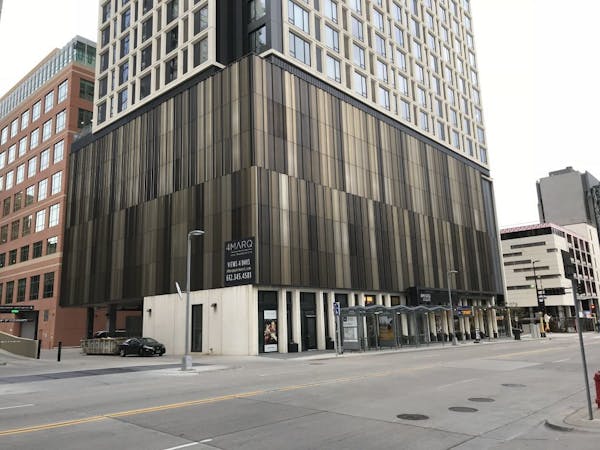WASHINGTON – For decades, providing downtown parking was a top priority for urban planners. Huge parking garages for commuters' cars occupied prime real estate that otherwise might have been used for housing, stores or offices.
But ride-hailing services and autonomous cars are going to revolutionize parking in cities. By 2030, 15 percent of new cars sold will be autonomous, according to one estimate. One in 10 will be shared. And as it becomes easier for people to summon shared or autonomous cars, fewer people will want to own their own vehicle, meaning fewer cars overall.
The bottom line: Less space will be needed to store cars. Some cities are gearing up to take advantage of the shift.
"Urban parking lots are dead or dying, and how we use the curb is changing," said Rich Barone, vice president of transportation for the Regional Plan Association of New York, New Jersey and Connecticut. The RPA released a report in October urging cities to "get ready" for autonomous vehicles. It predicts that by 2045, 70 to 90 percent of all cars in major urban areas could be autonomous.
Parking in downtowns is going to "morph from being big massive surface lots and garages to much smaller areas configured for pickup and drop-off of autonomous vehicles," Barone said. "Cities will be more walkable, more people-friendly, and there will be more space for parks."
Joe Schwieterman, a professor of transportation at DePaul University in Chicago, agreed. "The whole view of the function of streets has had a metamorphosis," he said. "It's made us rethink the opportunity cost of plopping a parking garage in prime downtown property."
Curbside parking also will be redesigned. The National Association of City Transportation Officials suggested in a recent study that reuses could include bike parking, green spaces, and pickup and drop-off areas for driverless vehicles and ride-hailing services.
"We always thought of curbs as the place where parking meters are, but it's a different space now," said Faye DiMassimo, general manager of Renew Atlanta, a 20-year, $252 million infrastructure bond approved by voters in 2015. "Now we find sidewalks and trails, and technologies like ride-sharing and autonomous cars pulling up and dropping off people. The curbside has to be managed differently than in the past."
Roadways are getting updates too. In September, Atlanta unveiled its first "smart road" to install technology for traffic control and eventually driverless cars, and it tested a driverless transit shuttle.
As urban planners start to shift focus from making it easy to park a car downtown to making it harder, cities such as Buffalo, Miami and Seattle are reducing or dropping their minimum parking requirements for new developments. Instead, they are capping the amount of parking that developers may provide.
Arlington, Va., just approved reducing the number of parking spots it requires for housing developments based on how close they are to mass transit. One hope is that allowing developers to forgo parking lots will let them build more affordable housing.
"Affordable housing is a really big issue, and Arlington is a very expensive place to live," said Dennis Leach, Arlington County's director of transportation.
Buffalo Bills owner Terry Pegula explores selling non-controlling, minority stake in franchise
The Latest | Judge agrees to seal 4 pieces of evidence in hush money trial
Tennessee Volkswagen workers to vote on union membership in test of UAW's plan to expand its ranks

